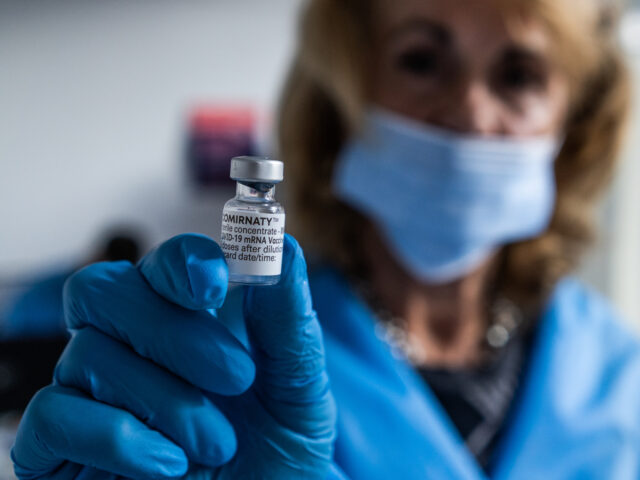Big Pharma giants trading within the European Union have a “disproportionate” say in the bloc’s public health affairs, a study has claimed.
A report drawn up by French NGO Global Health Advocates and UK Charity STOPAIDS has concluded that major multinationals within pharmaceutical industry have a “disproportionate” say in the public health affairs of the European Union, with the COVID pandemic, in particular, handing a small group of companies even more power and say over healthcare within the bloc.
The report comes at a time of continued controversy within the EU surrounding its procurement of vaccines, with various officials and politicians in Brussels dissatisfied by the European Commission’s lack of transparency surrounding actions taken during the pandemic.
Such criticisms were largely repeated in the study published last Friday, with both NGOs warning that big pharma “industry influence” seemingly led to some “car crash decisions” being taken by those in power.
“We find that whilst industry influence existed even before the pandemic, this influence was magnified at a time when the continent was desperate to vaccinate its population in the face of a new virus,” an executive summary detailing the report’s findings reads.
“This resulted in accommodating industry requests on several matters, from pricing, liability, transparency, to intellectual property,” it continued, with EU publication Euractiv describing the groups as denouncing the “disproportionate influence” big pharma has on decision makers within the bloc.
In particular, the groups highlighted the European Union’s overly deferential treatment of pharmaceutical giants as being to the detriment of people both inside and outside the EU, with both groups claiming that vaccine access could have possibly been curtailed in the developing world as a result of the bloc’s agreement to the seemingly profit-driven demands of some manufacturers.
The report also heavily criticises the EU’s censoring of the vaccine procurement contracts agreed between the European Commission and vaccine suppliers such as Pfizer, which resulted in some of the documents being rendered “unreadable” for politicians and members of the public.
Such censorship has become a major bugbear within Brussels, with the Commission now under sustained fire for its refusal to release unredacted versions of the document to elected representatives within the European Parliament.
Friday’s report is likely to only add to the controversy, with the NGOs criticising the censoring of the agreements as not only being extensive, but also as allegedly being both arbitrary and inconsistent with EU transparency laws.
“Withheld information was often arbitrary, inconsistent, and not related to the exceptions invoked under existing law to justify secrecy,” the NGOs claimed in relation to the censored documents, also alleging that the EU was “more secretive” about the contracts than other powers.
“The EC (European Commission) also agreed to extensive confidentiality requirements with pharmaceutical corporations that may not be fully consistent with EU legislation,” the report claimed.
However, historically speaking, the impact of EU law on those within the Commission has not always been significant, with an Ombudsman’s ruling that the Commission acted inappropriately in not releasing text messages between its president, Ursula von der Leyen, and Pfizer CEO Albert Bourla, seeing no legal consequences being imposed against the body.

COMMENTS
Please let us know if you're having issues with commenting.